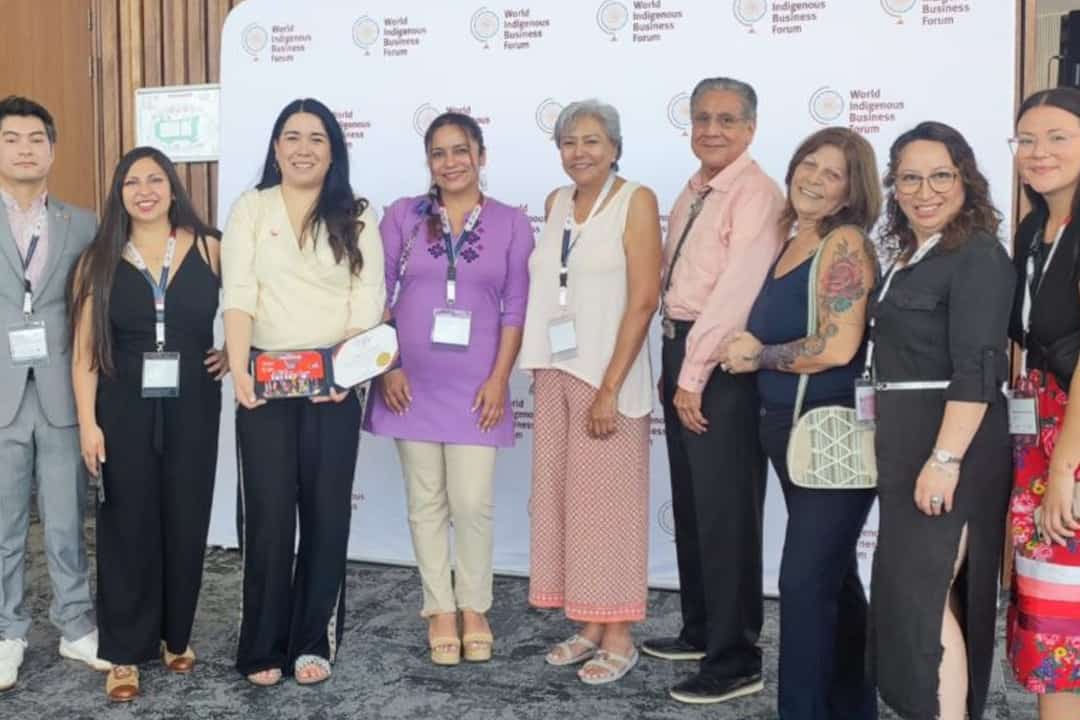Recently, four Chilean indigenous startups made a significant appearance at the “World Indigenous Business Forum” in Port Moresby, Papua New Guinea. This annual event gathered representatives of indigenous businesses from 13 countries, and the Chilean delegation, sponsored by ProChile, stood out as the only representative from Latin America.
Alejandra Antilef, national coordinator of Indigenous Peoples of ProChile, highlighted the importance of this participation, noting that it not only integrated Chilean indigenous peoples into international trade but also provided them with a vital space for exchanging experiences and business practices that respect their ancestral traditions.
The delegation, consisting of two startups from the Metropolitan Region, one from Valparaíso, and one from Araucanía, had the opportunity to present their exportable products. This participation was made possible through the agreement between ProChile and CONADI. Among the participants was Cindy Cañupán from the “Distribuidora y Comercializadora Nain Sociedad Limitada” in the Metropolitan Region, a Mapuche entrepreneur who, together with her sister Judit, produces artisanal footwear exported to several countries.
Ángelo Quilodrán, representing “Yoggie Spa” from La Araucanía, demonstrated how his Mapuche food company incorporates principles of food safety and healthy eating trends, all rooted in the Mapuche values of keyugun or cooperativism. His focus is on revaluing ancestral raw materials, promoting food sovereignty, and fair trade with local indigenous communities.
Karen Antonopai, from “Mercado Ancestral” in the Valparaíso Region, highlighted her digital platform that connects artists and entrepreneurs from indigenous communities, mostly women, to disseminate and market products and indigenous tourism experiences. This project not only promotes self-management and social and economic empowerment of its participants but also strengthens intercultural dialogue and the appreciation of ancestral knowledge.
Antinopai emphasized the importance of the World Indigenous Business Forum as a global platform for meeting and growth, inspired by examples such as the Maori people of New Zealand, who have significantly contributed to the social and economic development of their communities. These examples motivate Antinopai to continue her work supporting and growing other indigenous women in Chile.
Sebastián Oyarzo, also from the Metropolitan Region, participated in the forum. A graduate in Linguistics, Mapuche Cultural Manager, and chef, Oyarzo is dedicated to preserving Mapuche culture in urban contexts, working for the interculturality of indigenous peoples in Chile. His project, Willi Kitral, focuses on agro-processed and gourmet products made with raw materials from Peasant Family Agriculture, reaffirming the rich heritage of indigenous communities.
This event reflects a significant step towards the integration of indigenous peoples into the global sphere of trade and entrepreneurship, demonstrating the value of combining tradition with innovation and modern commerce. The experience of these startups at the world forum not only represents an achievement for them but also serves as an inspiring model for other indigenous communities seeking to explore international trade while respecting their identity and ancestral culture.






